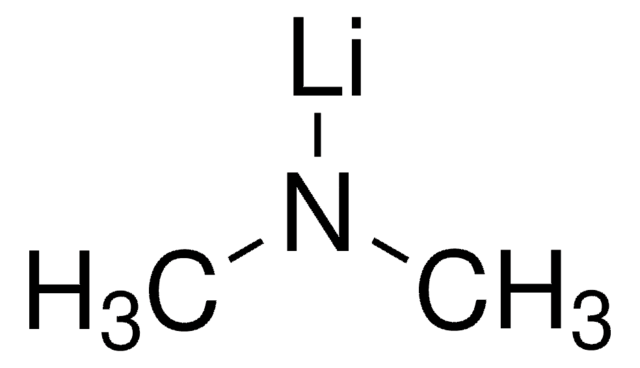Key Documents
208353
Molybdenum(V) chloride
95%
Synonim(y):
Molybdenum pentachloride, Pentachloromolybdenum
About This Item
Polecane produkty
ciśnienie pary
1.75 mmHg ( 25 °C)
131 mmHg ( 250 °C)
Poziom jakości
Próba
95%
Postać
powder
przydatność reakcji
reagent type: catalyst
core: molybdenum
zanieczyszczenia
<0.5% insoluble matter
tw
268 °C (lit.)
mp
194 °C (lit.)
gęstość
2.928 g/mL at 25 °C (lit.)
Zastosowanie
battery manufacturing
ciąg SMILES
Cl[Mo](Cl)(Cl)(Cl)Cl
InChI
1S/5ClH.Mo/h5*1H;/q;;;;;+5/p-5
Klucz InChI
GICWIDZXWJGTCI-UHFFFAOYSA-I
Szukasz podobnych produktów? Odwiedź Przewodnik dotyczący porównywania produktów
Powiązane kategorie
Opis ogólny
Zastosowanie
- Condensation of nitrobenzene with alcohols and C-C coupling of alkenyllithium reagents.
- Direct amidation of benzylic alcohols with sulfonamides and carbamates.
It can also be used as aprecursor to synthesize alumina/molybdenum nanocomposites and methylenemolybdenumreagents for chemoselective carbonyl alkenation.
Hasło ostrzegawcze
Danger
Zwroty wskazujące rodzaj zagrożenia
Zwroty wskazujące środki ostrożności
Klasyfikacja zagrożeń
Carc. 2 - Eye Dam. 1 - Skin Corr. 1B
Kod klasy składowania
8A - Combustible corrosive hazardous materials
Klasa zagrożenia wodnego (WGK)
WGK 3
Temperatura zapłonu (°F)
Not applicable
Temperatura zapłonu (°C)
Not applicable
Wybierz jedną z najnowszych wersji:
Masz już ten produkt?
Dokumenty związane z niedawno zakupionymi produktami zostały zamieszczone w Bibliotece dokumentów.
Klienci oglądali również te produkty
Produkty
In the last two decades, a new method termed solid-state metathesis (SSM) has been developed to synthesize compounds that are often difficult to produce conventionally.
Nasz zespół naukowców ma doświadczenie we wszystkich obszarach badań, w tym w naukach przyrodniczych, materiałoznawstwie, syntezie chemicznej, chromatografii, analityce i wielu innych dziedzinach.
Skontaktuj się z zespołem ds. pomocy technicznej











